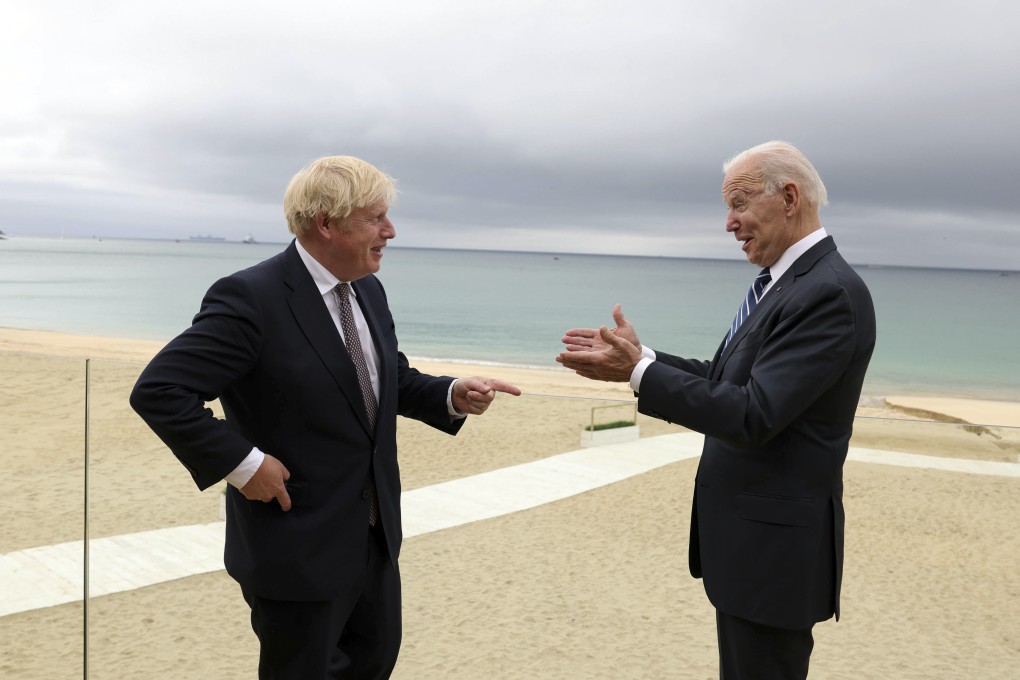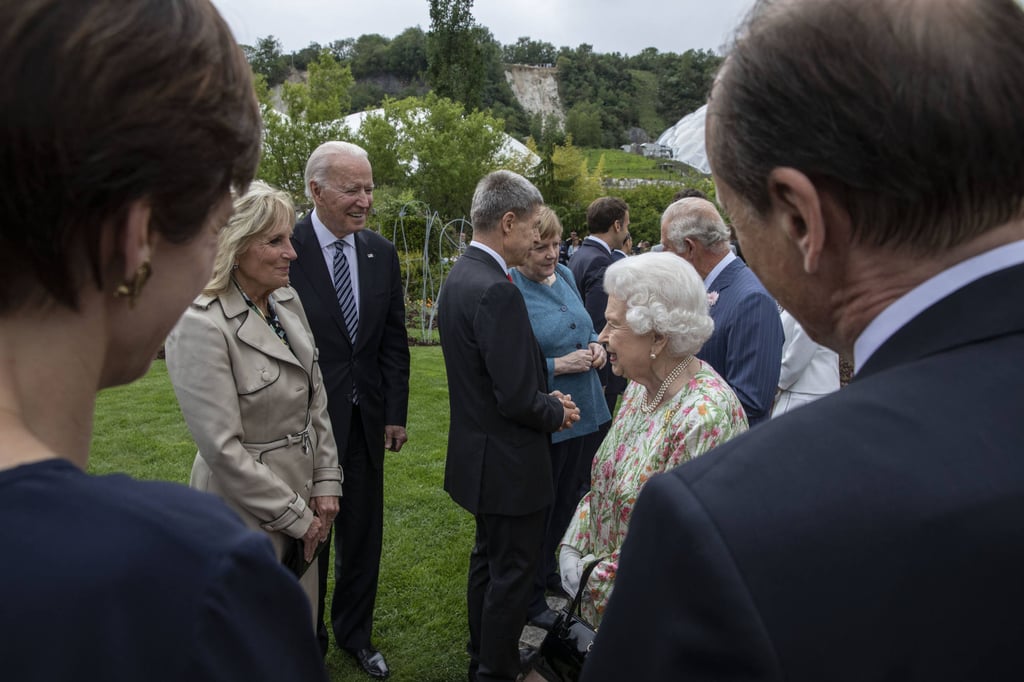Advertisement
Inside Out | G7 summit: after the political theatre, the US, Britain and EU must get back to working with China
- The celebratory mood of the gathering of Western leaders in the UK makes for fine political theatre, even if it may not go far enough to provide solid foundations of a future ‘alliance of democracies’
- High-level collaboration with China is necessary to tackle our foremost global problems, not least pandemic recovery and climate change
Reading Time:4 minutes
Why you can trust SCMP
99+

When it comes to politics as theatre, the UK is a hard act to follow. And Prime Minister Boris Johnson in Carbis Bay in Cornwall over the weekend was a class Shakespearean act. Or was it Churchillian? Or Arthurian?
Johnson choreographed a G7 summit that all will remember. He may not succeed in restoring the G7 to its original Cold War glory, when its members (the US, Britain, France, Italy, Germany, Japan and Canada) accounted for 59 per cent of world GDP (they account for 45 per cent today) and walked with a swagger, confident that they could shape the world in the image of Western liberal democracy. But he has given it a good shot.
He deserves credit for making the G7 summit a memorable, watershed event; a striking “coming out” celebration for Joe Biden in his first presidential sortie outside the US; an assertion of “Global Britain” as it sets out on its Brexit future; a surprisingly strong affirmation of the US-UK “special relationship”; and a fitting launch pad for the UK’s “main event” in November when, in Scotland, he will host the COP26 climate summit. Whether it provides foundations for a future “alliance of democracies” has yet to be seen.
Advertisement
For Biden, throw in a dinner with Queen Elizabeth, a summit with the European Union and Nato, and a snake-pit encounter with Vladimir Putin, and we are witnessing a striking repudiation of “America first” and a credible affirmation that Donald Trump’s wilderness years are firmly past.
As Biden told American troops at the Mildenhall Royal Air Force base after landing in the UK: “The United States is back and the democracies of the world are standing together to tackle the toughest challenges and issues that matter most to our future.”

In politics as theatre, symbols and allegory were everywhere. As home to the mythical 12th-century King Arthur, Cornwall provided a fine setting for a grand “round table”, even without a Merlin to work miracles.
Advertisement
Select Voice
Select Speed
1.00x
